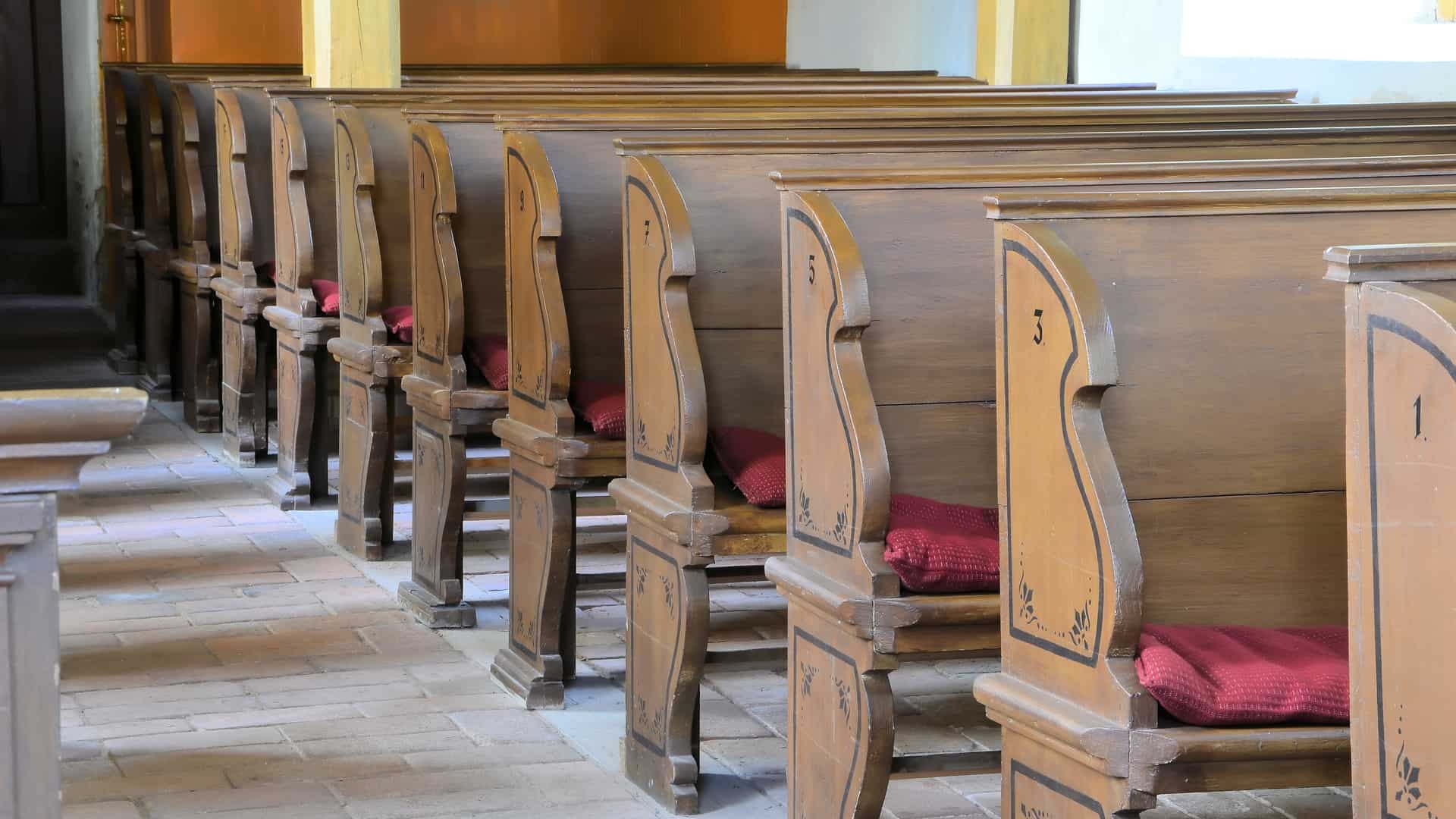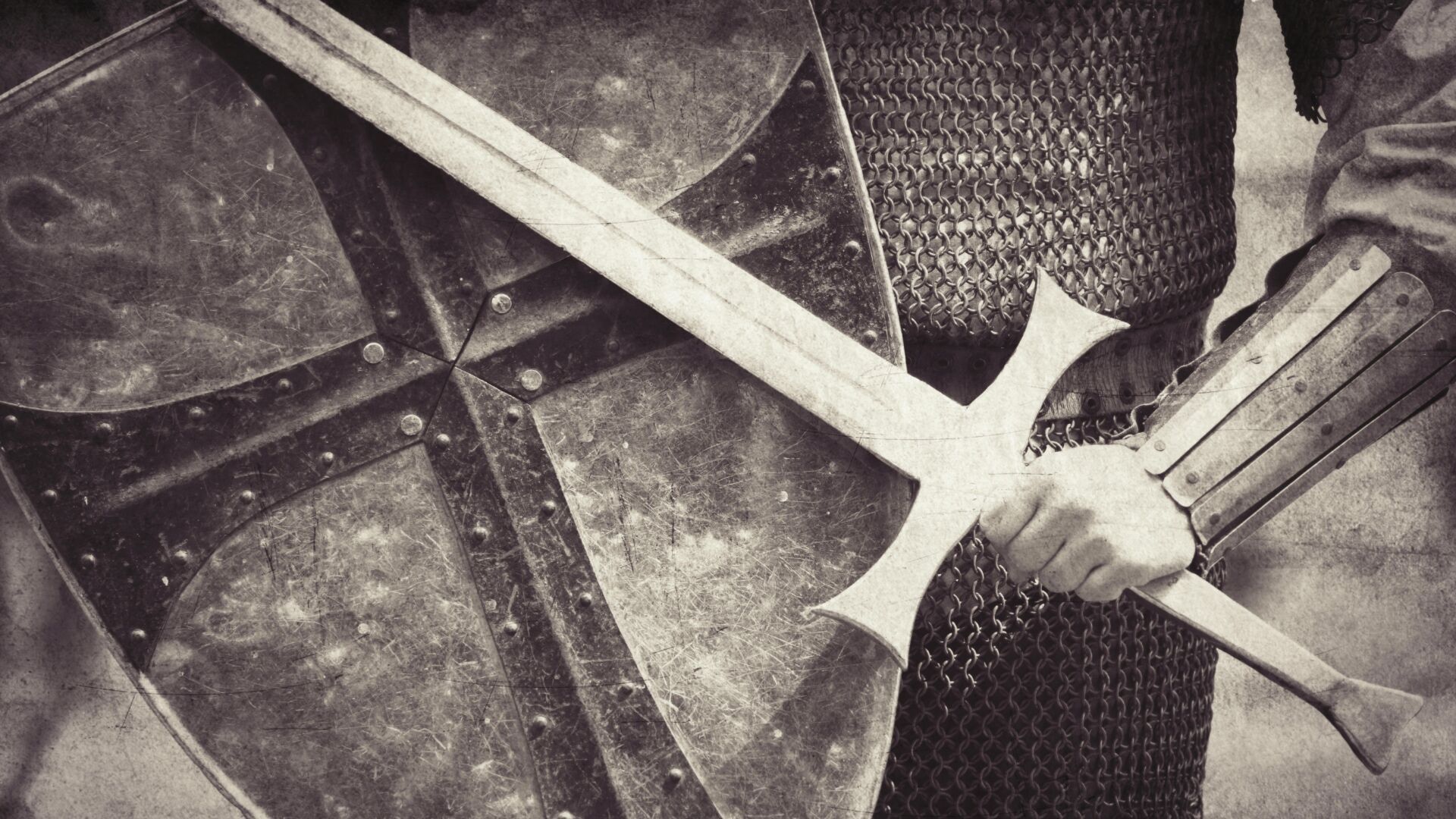The Church, the Saints, and Forgiveness (Matthew 16:13-20)

Big Idea: The church is created, built, and given authority by Jesus.
I went through a number of years in which I was pretty negative about the church — which was pretty tricky, because I was leading one!
I felt restless. In the church I was part of at that time, I could spot all kinds of problems. That particular church had a negative history. I was pastoring some prickly people. I sometimes wondered if our priorities really lined up with what the Bible said they should be. I had a lot of issues. Some of them were intellectual, but many of them were emotions. Things didn’t feel right to me.
What changed? I’m not absolutely sure, but I think part of it was beginning to see the church more theologically. I began to see the church the way God sees it.
In an interview shortly before his death, Dallas Willard, a philosophy professor who wrote widely on spiritual formation in the church, was asked about the challenges facing the church. Dr. Willard spent much of his life addressing the problem of why the church isn’t raising up more people who look and act like Jesus.
At the end of that two hour interview, Willard was asked this pointed question: “When you look at how off track the church is, do you ever just throw up your hands in despair?”
Willard smiled and said, “Never.”
“But how can you not?” the interviewer asked.
“Because,” he said, “I know Christ is the head of his church and he knows what he’s doing.”
Can we ever throw up our hands in despair about the church? Never! Because Christ is the head of the church, and he knows what he’s doing.
We’re almost at the end of our series through the Apostle’s Creed. The Apostle’s Creed is the oldest creed of the Christian church, going back to at least the year 140. a basic summary of the key truths that all Christians believe. We’ve covered three parts so far: God the Father, God the Son, and God the Holy Spirit. Today we’re going to cover most of the fourth and final section that talks about the church.
I believe a holy catholic church;
the communion of saints
the forgiveness of sins…
That’s what I want to look at today. I want to look at the story we just read and tease out what the church is, and why it’s important for all of us.
Here’s what we learn.
The Church Is Created and Built by Jesus
When we were on vacation in Midland in July, we got to visit a local festival. I was browsing the vendors. Some of them made crafts. I liked one of them so much that I bought something as a gift, but others didn’t appeal to me. When I stopped at a table, though, I knew that the crafts were personal to each vendor. They created each product. They built them. To insult the craft would be to insult the creator, who was standing right in front of me.
It’s the same with the church. Who invented it? As it turns out, Jesus did. We read in Matthew 16:17-18:
Blessed are you, Simon Bar-Jonah! For flesh and blood has not revealed this to you, but my Father who is in heaven. And I tell you, you are Peter, and on this rock I will build my church, and the gates of hell shall not prevail against it.
Let’s break out what Jesus says here.
The source of truth is God. “For flesh and blood has not revealed this to you, but my Father who is in heaven.” The church believes things. That’s why we’re going through this series on the basic truths of the Christian faith. What unites the church throughout two thousand years across the whole world? Truths about God. In particular, according to this passage, it’s the truth about who Jesus is: that he is the Christ, the Son of the living God. The church believes things, not because the church has invented these things, but because God has revealed these things to us. Peter did not figure this out himself! Jesus himself says that the source of knowledge about who he is not human thought but God himself.
God takes weak, ordinary people and turns them into something. “…you are Peter, and on this rock I will build my church.” There’s a lot of debate about this verse. Let me tell you what I think it means. If you knew anything about Peter, you would be concerned. You may not hire him as your #1 guy. He was impulsive and all over the place. In just a few verses, Peter sticks his foot in his mouth and Jesus has to rebuke him. But here Jesus says, “You’re Peter (which means rock), and on this rock I’ll build my church.” God builds his church using flawed, weak people who confess Jesus Christ — just like he’s doing today.
It’s Jesus who’s building the church. Don’t miss this part. It’s Jesus who is building his church. It’s:
…not ultimately dependent on human initiative or human wisdom or human perseverance. It is ultimately dependent on the power and wisdom and faithfulness of the risen and living Christ to keep this promise: “I will build my church.” Not, “You will build my church.” Or, “Missionaries will build my church.” Or, “Pastors will build my church.” But, “I will build my church.” (John Piper)
What keeps me from being cynical about the church? This was his idea! It’s always been full of flawed people who mess things up. But Jesus is using flawed people who confess the truth about who he is and is building something beautiful. The church is God’s idea.
Ben Myers writes:
Jesus wrote no books. He established no institutions. He did not lay down the right answers to moral questions. He did not seem particularly interested in founding a new religion. He was the author not of ideas but of a way of life. Everything Jesus believed to be important was entrusted to his small circle of followers. What he handed on to them was simply life. He showed them his own unique way of being alive—his way of living, loving, feasting, forgiving, teaching, and dying—and he invited them to live the same way.
That’s why the creed says, “I believe a holy catholic church; the communion of saints…” The word catholic doesn’t mean Roman Catholic; it means universal. “Though there have been many Christian communities spread out across different times, places, and cultures, they are all mysteriously united in one Spirit” (Myers). Each local church is part of that glorious Church. It’s why it can talk about the communion of saints: a communion that exists between all Christians who live on this earth, and even with those saints who have died before us.
The church is created and built by Jesus. That’s the first truth. But there’s more.
The Church Is Given Authority by Jesus
…on this rock I will build my church, and the gates of hell shall not prevail against it. I will give you the keys of the kingdom of heaven, and whatever you bind on earth shall be bound in heaven, and whatever you loose on earth shall be loosed in heaven. (Matthew 16:18-19)
Jesus creates and builds the church, and he also gives it two kinds of authority.
The church is invincible. Not individual churches — those die. But Jesus’ church — the holy catholic church, the communion of saints — will never die. People will die. Governments will rise and fall. Nations will collapse. But the church will keep on going no matter how strongly it’s opposed. “Nothing in this world or the next can overthrow the church” (Leon Morris). It has power over the realms of death.
I love how J.C. Ryle put it:
Nothing can altogether overthrow and destroy [the church]. Its members may be persecuted, oppressed, imprisoned, beaten, beheaded, burned; but the true church is never altogether extinguished; it rises again from its afflictions; it lives on through fire and water. When crushed in one land it springs up in another. The Pharaohs, the Herods, the Neros, have labored in vain to put down this church; they slay their thousands, and then pass away and go to their own place. The true Church outlives them all, and sees them buried each in his turn. [The church] is an anvil that has broken many a hammer in this world, and will break many a hammer still; [the church] is a bush which is often burning, and yet is not consumed.
This gives us a lot of confidence, doesn’t it? Jesus gave the church authority over death. That’s the first kind of authority. Here’s the second.
The church has the authority to declare who’s a kingdom citizen and who isn’t. This may blow your minds. Jesus says:
I will give you the keys of the kingdom of heaven, and whatever you bind on earth shall be bound in heaven, and whatever you loose on earth shall be loosed in heaven. (Matthew 16:19)
What does this mean? Keys symbolize power and authority to open doors. So Peter and the church get the authority to open and lose the doors of heaven. The same goes for binding and loosing. Peter and the church will pass on decisions that have been made in heaven.
This is amazing.
Whether in the front door of membership or the back door of discipline the congregation examines the profession of faith to see its validity. It is here, among those with the keys, that Jesus is dwelling with those who make such a profession and follow him. The church is made up of those who say, “I’m with Jesus.” And Jesus is there with the church. (Erik Raymond)
Do you realize this … the authority that has been entrusted to us as the church? We tell people whether or not they are going to heaven or to hell … whether or not they are in the kingdom of heaven or not. Which is why … there comes a point where we remove someone from the church if they do not show evidence of God’s grace in confession of Christ as Savior and Lord … because we don’t want someone to assume that they are a Christian, a part of the church, when they are not. This is why before anyone joins with the church, they sit down with an elder or deacon and talk about their confession of faith in Christ … because being a part of the church is not just like joining a club—this is a huge confession with eternal ramifications. (David Platt)
That’s why I’ve included “the forgiveness of sins” in the sermon today. You can’t know that you’re a Christian alone. It’s the church’s job to affirm that. That’s why I’m encouraging you to join the church. It matters more than we realize!
Here’s what I’m trying to say: The church is created, built, and given authority by Jesus.
So let me ask you. Do you believe in the holy catholic church; the communion of saints; the forgiveness of sins? Church isn’t an optional extra. It’s essential. As Eugene Peterson puts it:
No gift, no virtue can develop and remain healthy apart from the community of faith. “Outside the church there is no salvation” is not ecclesiastical arrogance but spiritual common sense, confirmed in everyday experience.
That’s why church is important. That’s why you need the church — and I do too. Let’s take the church as seriously as Jesus does.





